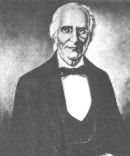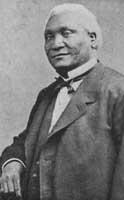It is always hazardous writing about coup attempts before everything is done and dusted, but the recent one in Turkey is notable in several respects.
Also, unusually for this type of thing, I was watching the updates in real time, so there's a few things that stuck out to me that might not be so obvious if you just read about it the next day.
The most striking thing is the extent to which everybody, myself included, misread the most important moment of the whole proceedings.
It was this:
That is Turkish President Erdogan, giving a press conference by facetime, assuring people that everything is just fine.
Up to this point, you may recall, there had already been reports on official Turkish State TV that the coup had succeeded (past tense), that a peace council was now in charge of the country, and a curfew was in effect. The reports in the press were tending towards announcing the coup as a fait accompli.
So, given that background, what do you what do you make of this?
The popular response to this was twofold. Firstly, derision. A press conference by phone indeed is farcical. This kind of reaction was typical.
Chortle.
I mock, but I shouldn't. If my response had been fixed publicly in time, it probably wouldn't have looked much more sophisticated.
Second, most people looked at this and saw Baghdad Bob. It's hard to convey the impression that you're in charge of the situation from behind a phone. What it looks like is someone who's already packed their bags and is getting the hell out of dodge.
In other words, it wouldn't matter what he was saying, the real message was that it was over and the leader had fled. The coup had won.
It turns out, people were so focused on the absurdity of the situation that they missed what he was saying.
He was telling people to take to the streets and protest, focusing on the main squares and airports.
And this was a really, really, important message to get across.
Because he had enough supporters that they really did take to the streets. You're not Baghdad Bob if you still have a massive army of supporters at your disposal, even if you are behind a phone screen.
The next thing that became apparent was something that the War Nerd has noted a long time ago - driving tanks around urban environments without infantry support, which is what the army was doing, is a recipe for disaster. This is especially true when the opponents have RPGs, but even in Istanbul there were rumors of tanks being disabled by people throwing sheets over them, pulling the crews out, etc. Not to mention the photos of civilians lying in front of tanks, daring the military to drive over them. Which it turns out they lacked the gumption to do. The apparently impregnable tanks being taken over by protestors became a really depressing metaphor for the whole event, at least if you were hoping for it to succeed.
What's really, really important in coups is Schelling Points. Why is a facetime speech still really valuable? For the same reason that controlling State TV (which the coup plotters also did early on, and then lost) is really important, actually even more important. You thought TV was obsolete, didn't you? Not in a coup it's not.
Partly, it conveys a sense of official power. The main information outlet is now owned by the coup. Erdogan is reduced to a telephone, which is not nearly as good. So far, so good for the plotters, at least early on.
But much more importantly, it conveys the same message to lots of people all at once. And it turns out facetime is just fine for this purpose. What the government forces couldn't do until that point was to coordinate the behavior of their supporters. When they all started hitting the streets at once, everything changed. Suddenly the military had a much bigger problem on its hands.
All security forces exist based on force projection and self-fulfilling beliefs. If everyone committed crimes all at once, the police don't have nearly enough people to arrest them all. Law and order is maintained because for the vast majority of people, each one believes that law enforcement will arrest him, John Q Citizen, if he commits a crime. Hence most people don't commit crimes, the belief in the authority of the police is maintained, and order persists. The only time this breaks is during a riot, when people realise that they can just loot stuff because there aren't enough police to arrest them all, and the police aren't doing anything anyway.
So this problem exists for security forces at the best of times. But it's even more severe during a coup.
In a coup attempt, everyone is looking to see which way everyone else is going to jump.
If people think the coup has succeeded, they will stop fighting, and the coup will actually succeed. This was what was initially happening, as far as I can tell, in the initial stages.
But the reverse is true. If people think the coup is failing, they will resist it, and some of the soldiers will surrender to the police, and this will depress morale of the rest. Moreover, this starts to happen at the point when you're relying on the soldiers to start shooting ever more of their unarmed countrymen. That takes a lot of martial discipline at the best of times.
What this tells you is that you can judge a lot about a coup's success just by who is making more official announcements. It doesn't even matter what they are. As soon as Erdogan's official statements started appearing regularly on my twitter feed, I strongly suspected that the gig was up.
As of writing, it's not "over" over. There keep being reports of ongoing fighting, jets bombing Erdogan's palace, jets bombing the airport (whose jets? great question).
But you're sure not hearing anything out of the coup leaders, and that bodes very poorly for them.
You can also judge a coup's success by the passage of time. The longer it goes on, the worse it looks for the plotters. In the ideal case, it's instant and bloodless. But they're fighting to reverse the default presumption of power. When that momentum starts to falter, it can reverse very quickly.
To slightly modify the great Sun Tzu, though we have heard of stupid haste in coups, cleverness has rarely been seen associated with long delays.
Finally, there is the role of the west in all of this.
A perennial question in matters of statecraft is the extent to which organised US power is actually running the world from behind the scenes, or catching up as a mostly clueless observer.
I don't think you and I will ever really know.
But one thing I do know is that all the official western outlets were conspicuously silent about the whole affair until after the protesters started hitting the streets. Then came the announcements that we need to support the democratically elected government of Turkey etc etc. Before that were rumors that Erdogan had been seeking asylum in Germany but his plane had been denied permission to land.
It seems that it's not just people in Turkey who are waiting to find out which way the wind is blowing.
And because it failed, I doubt we will ever really know who was behind it. In the weird three-way war between the 1) secular parts of the Turkish military, 2) the Gulen cultists and 3) the Erdogan supporters, it's not clear whether this was group 2 alone, group 1 alone, or group 1 and 2 in combination. Erdogan is blaming this on Gulen, but he'd be crazy to not use the opportunity to consolidate his power over them, even if he thought it was the secularists.
Successful changes of government have a thousand fathers, but a failed coup is the most despised orphan of them all.





























